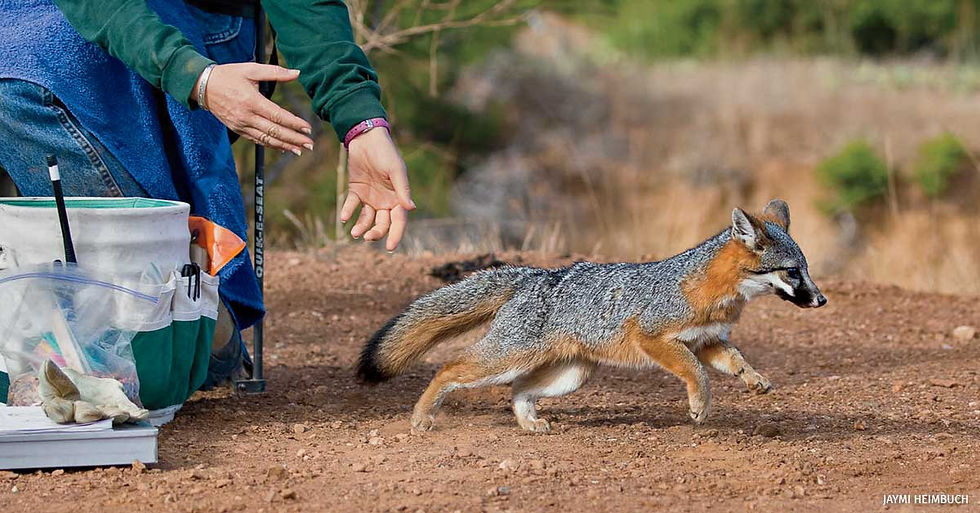Why Endangered Species Matter
Today is Endangered Species Day!
Did you know that there are currently over 41,000 species listed on the IUCN Red List, with over 16,000 of those species being threatened by extinction? These include critically endangered species that have been the focus of many high-visibility conservation efforts, like the Black Rhino and African Elephants. The list also includes species that are closer to home, for those of us in North America: the Bald Eagle, the Red Wolf, the Black-Footed Ferret, the California Condor.

While species extinction has happened throughout Earth's history, scientists believe that our current rate of extinction is occurring 1000x faster than at any previous point in history (source), due to human-caused impacts of habitat loss and degradation, hunting/poaching, overfishing, pollution, and the knock-on effects of climate change. Species loss has huge impacts for our world, upsetting ecosystems' delicate balance and causing cascading effects.
To celebrate Endangered Species Day, let's learn more about why endangered species matter, and why animal conservation should be a driving concern in our fight for climate change mitigation and environmental health:

An Island Microcosm - The Island Fox: Here in Southern California, the Channel Islands provide a perfect microcosmic case study in how human activity disrupted an ecosystem and led to the near-extinction of the Island Fox - and how conservationists saved them. READ.
The Trophic Cascade: One of the reasons species conservation is so important is because it protects the "trophic structure" of an ecosystem, or what we in layman's terms might call "the food chain". When a species is lost, it pulls a leg out of the trophic structure, which can lead to an entire collapse. This effect is called a "trophic cascade": learn more about it in this video.
Know Your Laws: The key piece of legislation that protects endangered species in the U.S. is the 1973 Endangered Species Act. Here's a video explaining how it works. The ESA is alternately critiqued as being "too much" by some, and "not enough" by others. Most recently, the Trump administration cut out key parts of the ESA (leading to sad consequences for gray wolves), a step that the Biden administration is reviewing for rollback.
The Sixth Extinction: Extinction has happened throughout Earth's history, but human activity is causing it to dramatically accelerate, faster than we or the planet can adapt to. If you haven't read Elizabeth Kolbert's Pulitzer-winning book, check it out here.
Red Fish, Blue Fish: Speaking of trophic cascades and human-caused problems, overfishing is causing significant declines in fish populations all over the world. This is terrible news not just for humans (who depend on fish as a food source) but all oceanic animals. Learn more about it here.






Comments